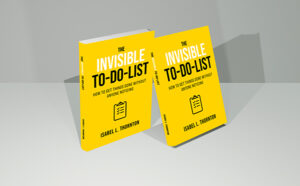
When most people think of “rest,” they imagine sleep, lounging on the couch, or a weekend getaway. But for autistic adults—especially those recovering from burnout—rest is far more complex. It’s not just about sleep; it’s about finding recovery in ways that respect sensory needs, energy levels, and authentic comfort.
In Embracing Self-Care for Autistic Burnout: Your comprehensive resource for managing autistic burnout, we redefine what rest really means for autistic people—and why embracing your unique version of rest is critical to healing.
Why Traditional Rest Often Doesn’t Work
Mainstream rest ideas—like spa days, group yoga, or even vacations—can actually feel draining. Here’s why autistic adults may not recharge from these common suggestions:
- Sensory overload from unfamiliar environments or group activities
- Social expectations attached to “fun” events
- Rigid schedules that add stress instead of relief
- Masking pressure even in leisure settings
Instead of refreshing, these experiences may deepen exhaustion.
What Autistic Rest Really Looks Like
For autistic individuals, rest often means removing demands, not adding activities. Rest can include:
- Repetitive, familiar activities (watching the same show, re-reading a favorite book)
- Stimming in a safe, comfortable space
- Reducing sensory input with weighted blankets, soft lighting, or noise-canceling headphones
- Spending time alone without social obligations
- Engaging deeply in a special interest
These activities may not look like “rest” to others—but for autistic adults, they provide the reset the brain and body desperately need.
Signs You Need Autistic Rest (Not Just Sleep)
- You wake up tired even after 8+ hours of sleep
- Small sensory triggers feel unbearable
- You avoid communication—even with close friends
- Your executive function feels nonexistent
- You crave sameness, solitude, or silence
If these resonate, your body isn’t just asking for more sleep—it’s asking for neurodivergent rest.
How to Honor Your Rest Needs Without Guilt
One of the hardest parts of autistic rest is battling internal and external judgment. Society often equates rest with laziness. But the truth is: rest is survival. To make rest sustainable:
- Give yourself permission to rest in your own way—even if it looks “unusual.”
- Communicate boundaries with loved ones (“I need quiet time to recover.”).
- Schedule low-demand days into your routine proactively.
- Reframe rest as productive because it restores your ability to function.
As one Amazon reviewer shared about the book:
“I learned that my way of resting—watching the same movie five times—wasn’t weird. It was what my brain needed. That realization alone eased my guilt.”
Redefining Rest = Redefining Recovery
Recovery from burnout isn’t about conforming to others’ ideas of self-care. It’s about listening to what actually restores you—even if it doesn’t make sense to anyone else. Your rest is valid. Your healing is valid.
Discover more neurodivergent rest strategies in Embracing Self-Care for Autistic Burnout.
🌙 Reclaim rest your way with the full guide





